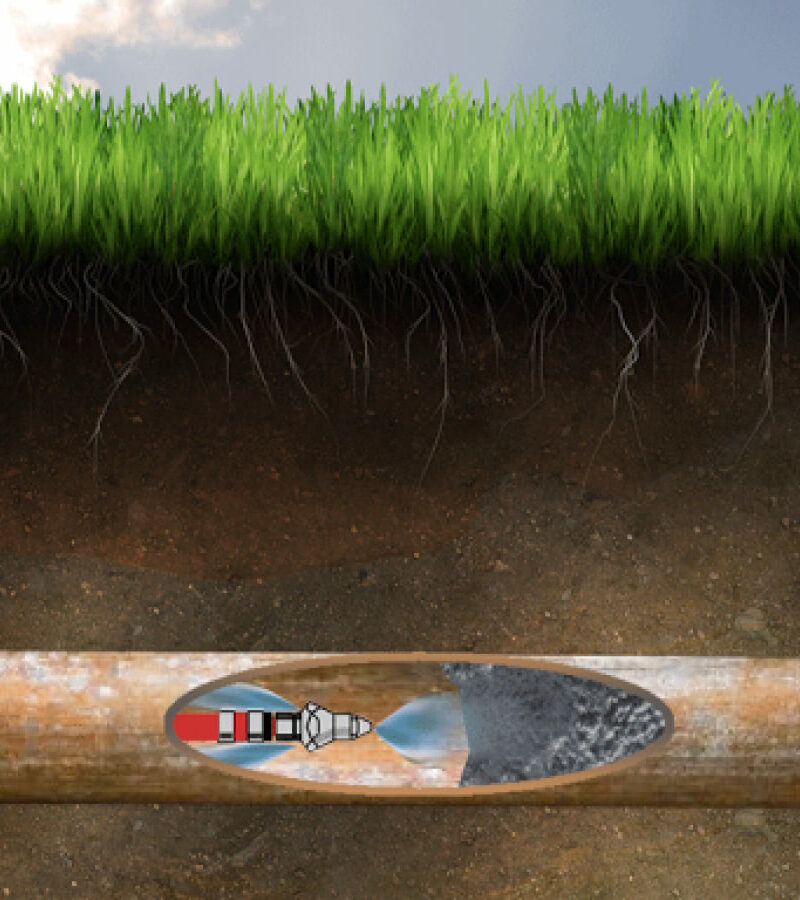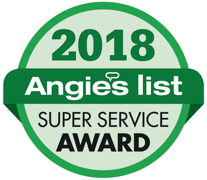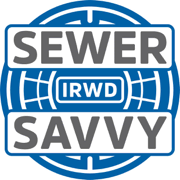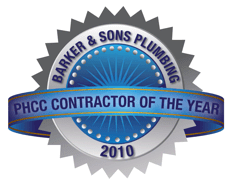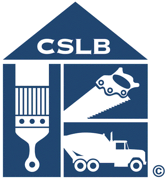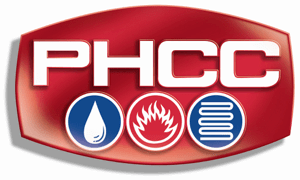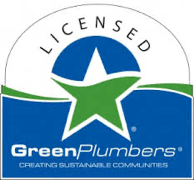
You Have Questions, We Have Answers
We have solutions to all of your plumbing issues
Plumbing and Rooter FAQs
Ever had a question about your plumbing system? If so, you’re not alone! At Barker & Sons, we want to provide the most reliable plumbing service to all of our customers. Check out our FAQs section to find the answers to just about everything you’ve ever wanted to know about your plumbing!
We’ll be updating this page frequently, so if you don’t find the answer to your question now check back often!
Plumbing FAQs
What should I do if I have a major leak?
A: First things first: shut off the water supply at the main shutoff valve. If you don’t have a shutoff valve or don’t know where yours is, you can turn off the water at the meter in an emergency. As soon as you’ve done this, call Barker & Sons for emergency pipe repair!
Why do my pipes rattle and make noise all the time?
A: Your pipes are probably not properly secured, and as a result there are some spots where they rub up against the floor joists. Barker & Sons can make sure your pipes are properly secured and even install plastic pipe hangers between your pipes and the joists to eliminate the noises.
Why does my hot water smell like rotten eggs?
A: This odor is caused by hydrogen, sulfur and bacteria in the water – don’t worry though, it won’t make you sick. When the magnesium anode rod in your water heater tank reacts with the sulfur and bacteria in the water, it creates enough hydrogen to create an odor. There are many ways to take care of this, from replacing the magnesium anode rod to purifying the water in your water heater.
I Have a Dripping Faucet? What Can I Do?
A: Dripping faucets are annoying—they disturb your sleep, break your concentration, and increase your water bill. The good news is that dripping faucets are fairly easy to fix. Read about how you can fix a dripping faucet.
Water Heater FAQs
Should I replace my old water heater?
A: There are several crucial signs that could indicate that your old water heater has finally reached the end of its lifespan. If it has, you might be paying more than you should be to heat your home. Read more about the signs that it’s time to replace your water heater.
Will a tankless water heater work for in my home?
A: Tankless water heaters work in almost every home – in fact, many work where conventional water heaters won’t! Most tankless water are about the size of a briefcase and require about 120V, 60Hz and 3 amps of power – requirements almost any house meets.
Why is my water heater’s pressure relief valve leaking?
A: The pressure relief valve on your hot water heater is designed to vent pressure that builds up so it doesn’t damage your unit. If the valve is leaking, this means the pressure is too high somewhere in yor system and the heater is trying to bleed it out. High pressure in your water heater can be caused by:
- High incoming water pressure from the main water line.
- Thermal expansion (water expanding in volume as it is heated) causing the pressure to build up. This is usually only a problem if you have a backflow preventer that stops water from moving out of the heater.
Can I use a tankless water heater if I have hard water?
A: Yes. In fact, tankless water heaters are less susceptible to the negative effects of hard water than conventional water heaters. That said, they are still affected by it. If you have hard water, it’s best to have water softening treatment whether you use a conventional or tankless water heater.
Water Leak FAQs
Can leaks get bigger if they’re ignored?
A: Yes. Over time, water leaking out of your pipes or fixtures will erode the material of the pipes,eventually causing even a pinhole-sized leak to grow and potentially cause serious damage to your home.
Do all water leaks rise to the surface?
A: No. In fact, most leaks will stay hidden for a long time. Common sources of hidden leaks include rainstorm pipes, sewer lines, stream channels and deserted pipes. The easiest way to find these is using sound amplification equipment.
What are the real dangers of hidden leaks?
A: As hidden leaks grow, they can waste water and cause damage to your home. Having your hidden leaks repaired will:
- Reduce or eliminate water loss
- Reduce your risk of damage from leaks(mold growth, etc.)
- Reduce the need for emergency repairs
- Reduce the need for water treatment and pressurization
How can I find out if I have a hidden leak?
A: If you think you have a hidden leak in your home, go out to your water meter and record the level that it’s currently displaying. Make sure no one uses any water (flushing toilets, using sinks, taking showers, etc.) for a few hours, then go back and check the meter again. If the level has changed from when you checked it before, you probably have a leak – call Barker & Sons to have it taken care of right away!
What are some factors that contribute to pipe corrosion?
A: Pipe corrosion can be caused by a number of things, almost all of which are related to water quality. These include:
- Chemicals in your water
- The pH of your water
- The oxygen content of your water
- The temperature of your water
- Your water pressure and velocity
Do I need to worry about small leaks?
A: You should – just because a leak is small now doesn’t mean it won’t grow bigger over time. Water leaking out of your pipes or fixtures will eventually cause enough corrosion that even a pinhole-sized leak can eventually grow and potentially cause damage to your home.
Are there dangers of leaks beyond high water bills?
A: Yes -not only do leaks get larger with age (see above) but they can also potentially cause damage to your home. Leak detection and repair offers a number of other benefits, including:
- Reduced or eliminated water loss
- Reduced risk of damage associated with leaks
- Reduced need for emergency repairs
- Reduced need for water treatment and pressurization
How do I know if I have a leak in my home?
A: If you notice a drop in water pressure, an increase in your home’s humidity, or water stains on your ceiling or walls, there’s a chance you have a leak. One easy way to check is to go out to your water meter and record the level. Make sure no one uses any water for a few hours, then go back and check the meter again (it’s easiest to record the first level when everyone goes to bed, then check it again first thing in the morning). If the level has changed, you probably have a leak – call Barker & Sons to have it taken care of right away!
What are the most common causes of pipe corrosion?
A: Pipe corrosion can be caused by a number of things, including:
- Chemicals in the water
- The pH of the water
- The amount of oxygen in the water
- The temperature of the water
- The water pressure and the speed at which the water moves through the pipes
As you can see, almost the most common causes of pipe corrosion are directly related to water quality. As a result, having water treatment is one of the best ways to prevent leaks from forming in your pipes.
Slab Leak FAQs
What is a slab leak?
A: Many homes in Orange County are built on large concrete slabs with inlaid copper piping. While copper piping is generally considered a reliable material, it can develop leaks over time. If a section of pipe in your slab starts to leak, this is known (appropriately) as a slab leak.
How can I tell if I have a slab leak?
A: Most of the time, you won’t be able to see many visual signs of a slab leak. That said, there are a number of other signs you should be on the lookout for. Note: not all of the following are definite signs of a slab leak, nor are these the only signs that exist. That said, the most common indicators of a slab leak are:
- An unusually high water bill – keep track of your water bill over time. If you see any big jumps, or if it seems to be getting steadily higher, you could have a leak.
- You hear running water – it’s common to hear water rushing through the pipes in one area of your house when someone is using water in another part. But if no one is using any water and you still hear it, there’s a good chance you have a leak somewhere in the house.
- Changes as the water meter – if you suspect you have a leak, find your water meter and record the level it displays. Make sure no one uses any water for a few hours, then check the meter again. If the level has changed, this is a good sign you have a leak.
- Hotspots of the floor-if you’re walking along the floor and you come across a spot that’s considerably warmer than anywhere around it, or if you have a smaller room (laundry room, mudroom, powder room, etc.) that’s always hot and humid, there’s a good chance you have a slab leak. A slab leak in a hot water line will allow hot water to accumulate under the slab and will radiate the heat and moisture up through the floor.
- The ground around your home is saturated – water from a slab leak will eventually get into the yard, causing large wet spots with standing water, mud, moss, etc. First, make sure this isn’t the result of over-watering – if it’s not, you may have a slab leak.
Like we said, these are the most common signs of a slab leak – they do not mean you definitely have one and they aren’t the only signs of a slab leak! If you’re worried you have a leak in your Orange County home, call Barker & Sons!
What do I do if I have a slab leak?
A: If you think you have a slab leak, call Barker & Sons right away. Our technicians will use electronic leak detection to accurately pinpoint your slab leak along with the origin and destination of the leaking pipe. Once this is done, we will write you an estimate for repairs, and if you approve it we can get started right away.
How do you fix a slab leak?
A: There are a couple different ways to fix slab leaks, not all of which involve tearing up the floor – it basically depends on where the leak is and where it’s going. Occasionally, we will have to access the pipe through the floor. More commonly, however, we will be able to reroute your pipes so no more water flows into the leaky pipe! This involves running a new pipe through the the framework of your house to restore water to affected areas without going into the floor. Finally, we can stop the leak by applying an epoxy coating to the inside of the pipe. Ultimately, the best method depends on the individual situation.
How does a slab leak form?
A: While copper is generally considered one of the most reliable piping materials, it can fail if it was not installed properly. Some of the most common contributors to slab leaks include:
- Abrasion – as the temperature changes, your copper pipes will expand and contract. If the pipes are touching a sharp or rough object, this constant rubbing will open up holes and cause a leak.
- Corrosion – poor water quality, including high concentration of minerals in the water, can cause the copper to deteriorate from the inside out, eventually creating a pinhole leak that will get bigger over time.
- Ground shifting – remember, your home’s slab is just a big piece of concrete in the ground and is, therefore, subject to all kinds of ground movement. All that movement can put stress on your pipes, and if the original architect didn’t account for this, it can create problems.
- Poor quality installation – the most important day in the lives of your pipes is the day they’re first installed. If your piping was kinked, damaged or forced into place, or if it was damaged by other workers after being installed, the consequences can show up years later as a slab leak.
- Age – while copper pipes are reliable, they’re not invincible – most have an average life expectancy of around 50 years. If your piping is getting older than this, it might a good idea to call Barker & Sons for whole house repiping to prevent a slab leak!
Tankless FAQs
Are Bosch tankless water heaters reliable?
A: For the typical home in Anaheim, Irvine, Fullerton, Newport Beach, Garden Grove, and throughout Orange County, heating water accounts for up to 30 percent of the household’s energy budget. If you currently use a conventional tank water heater, you should consider transitioning to a tankless water heater—these new water heaters are extremely reliable and energy-efficient!
What size tankless water heater do I need?
A: Since every home is different, it’s impossible to estimate the exact size tankless water heater you need without seeing your situation. To get a rough idea of the size (gallons per minute capacity) you’ll need, think about how much water you use every day – how long are your showers? How often do you wash dishes or clothes? Do you ever run the dishwasher and the washing machine at the same time? Try to get a rough estimate of how much water you use, then call Barker & Sons to install a tankless water heater that meets your family’s needs.
What is the average payback period on a tankless water heater?
A: Energy savings are so high on most tankless water heater that on average, you can recoup the cost of a tankless water heater in about three to seven years. When you consider that well maintained tankless water heaters can last up to 20 years or more, your investment will pay you back for years to come!
How hot is the water from a tankless water heater?
A: While you can set and adjust the temperature on your tankless water heater, they are typically set to 120 degrees – the same temperature as a conventional water heater!
The best thing is, with a tankless water heater you can set the thermostat lower and still get hot water! Conventional water heaters usually need to be turned up higher to keep all that water warm. Tankless water heaters heat water on demand, so you can keep the temperature lower and still have water that feels hot!
What are some of the benefits tankless water heaters offer over conventional heaters?
A: One benefit of tankless water heaters is unlike conventional water heaters, they never run out of hot water. While storage tank water heaters have a limited capacity (usually between 40 – 60 gallons), tankless water heaters heat water as it passes through the system, meaning you’ll never run out of hot water – especially important when the whole family is in town!
Another benefit is that since there’s no stored water, there’s no risk of an untimely leak (flooding from water heaters is one of the most common homeowner insurance claims!). And, since you’re only heating the water you’re using, you’ll see major reductions on your energy bills.
What are the advantages of tankless water heaters over traditional tank-type water heaters?
Tankless water heaters help you save money and provide you an endless supply of clean water. Barker & Sons Plumbing outlines all the advantages tankless water heaters have over conventional tank-type water heaters.
Garbage Disposal FAQs
My garbage disposal won’t run – do I need to replace it?
A: Not yet – there are a couple things you should try before replacing it. First, turn the disposal off, disconnect it from the power, and check to see if something is jamming it – a spoon or any other hard object (look inside to see if you can see anything first, then stick your hand in. Remember, TURN OFF THE POWER AND DISCONNECT THE UNIT – you don’t want to take any chances!). If you have an Allen key, find the unjamming wrench slot and turn it a few times to clear the disposal.
Next, plug the disposal back in and press the red RESET button. Finally, flip the breaker switch in your breaker box. If all else fails, call Barker & Sons for garbage disposal replacement!
How large of a garbage disposal do I need?
A: Garbage disposals come in all sizes, and it can be a little intimidating to figure out what size you need. At Barker & Sons, we can recommend the perfect garbage disposal for you, but for reference, they come in three sizes – ½ HP, ¾ HP and 1 HP. In general, ½ HP is recommended for light kitchen use, ¾ HP for normal household use, and 1 HP for heavy home use or commercial use.
Is there anything I should NOT put down my garbage disposal?
A: Yes – in fact, there are quite a few things that could damage your garbage disposal if you try to grind them up. Fibrous foods, including celery, asparagus, and artichokes can wrap around the blades and choke them. In addition, you should avoid putting down:
- Potato skins
- Bone fragments and eggshells
- Banana peels
- Fats / grease
- Unpopped popcorn kernels
- Onion skins
- Fruit pits and seeds
- Stringy vegetables like asparagus and celery
I’m getting weird odors from my garbage disposal. Is there anything I can do about it?
A: Odors from the garbage disposal are fairly common and typically easy to get rid of! The best thing to do is pour a cup of ice cubes down the disposal and run the blades. It’ll make a noise that sounds like your disposal is dying, but don’t worry – it’s not actually damaging your unit, but cleaning and honing the blades! While you’re doing this, you can use some lemon juice or lemon rinds to add a fresh scent, though the scent won’t last all that long.
Why does water back up into the sink when I run the dishwasher?
A: Since the disposal drain and dishwasher drain are connected, a clog in one will lead to a backup in the other. To prevent a backup, always make sure your garbage disposal is free of food particles before turning on the dishwasher and always run the garbage disposal with plenty of cold water so everything gets washed down.
If you find yourself with a really bad clog, plug up the sink, fill it with water, then remove the plug and run the disposal. The weight from the water should help force out whatever is backed up in the drain, eliminating the blockage. If this doesn’t work, give us a call! We carry garbage disposals on our trucks and can have you up and running in one day.
My garbage disposal blades are dull. What can I do?
Dull garbage disposal blades can really minimize the efficiency and effectiveness of your garbage disposal. Fortunately, there is an easy way you can sharpen your garbage disposal blades. Allow us to share this great do-it-yourself trick.
Sewer Main FAQs
What is a sewer main?
A: The sewer main is a utility pipe that carries wastewater from your house to the wastewater treatment plant. Buildings are connected to the sewer main by smaller pipes known as sewer laterals.
Am I responsible for my sewer line?
A: You are responsible for some, but not all, of your sewer line. All sewer lines have a public and a private side. Basically, you need to take care of every part of the pipe that extends to the end of your property lines. Your responsibilities include repairing it if it gets damaged, clogged, etc.
What is a sewer cleanout?
A: A sewer cleanout is a point of access where the sewer line can be serviced. It is usually about four ft in diameter with a steel or plastic cover on it. The sewer cleanout is vital to knocking out clogs in your sewer line without having to dig them up. To maintain your sewer cleanout, find out where it is located and make sure you keep that area clear of debris and plants, and other things – you’ll need quick access to it to prevent overflow in the event of a blockage.
Do I need a permit to fix my main sewer line?
A: Yes. Fortunately, when you call Barker & Sons for sewer line service, we take care of all the permitting details for you!
Sink Installation FAQs
What are the differences between a single bowl sink, double bowl sink, and a triple bowl sink?
In the market for a new kitchen sink? Trying to decide between a single bowl sink, double bowl sink, and triple bowl sink? It’s important that you understand the key differences between each of these. It all depends on the features of your kitchen and your personal preferences.
